

Concept Papers in Research: Deciphering the blueprint of brilliance
Concept papers hold significant importance as a precursor to a full-fledged research proposal in academia and research. Understanding the nuances and significance of a concept paper is essential for any researcher aiming to lay a strong foundation for their investigation.
Table of Contents
What Is Concept Paper
A concept paper can be defined as a concise document which outlines the fundamental aspects of a grant proposal. It outlines the initial ideas, objectives, and theoretical framework of a proposed research project. It is usually two to three-page long overview of the proposal. However, they differ from both research proposal and original research paper in lacking a detailed plan and methodology for a specific study as in research proposal provides and exclusion of the findings and analysis of a completed research project as in an original research paper. A concept paper primarily focuses on introducing the basic idea, intended research question, and the framework that will guide the research.
Purpose of a Concept Paper
A concept paper serves as an initial document, commonly required by private organizations before a formal proposal submission. It offers a preliminary overview of a project or research’s purpose, method, and implementation. It acts as a roadmap, providing clarity and coherence in research direction. Additionally, it also acts as a tool for receiving informal input. The paper is used for internal decision-making, seeking approval from the board, and securing commitment from partners. It promotes cohesive communication and serves as a professional and respectful tool in collaboration.
These papers aid in focusing on the core objectives, theoretical underpinnings, and potential methodology of the research, enabling researchers to gain initial feedback and refine their ideas before delving into detailed research.
Key Elements of a Concept Paper
Key elements of a concept paper include the title page , background , literature review , problem statement , methodology, timeline, and references. It’s crucial for researchers seeking grants as it helps evaluators assess the relevance and feasibility of the proposed research.
Writing an effective concept paper in academic research involves understanding and incorporating essential elements:
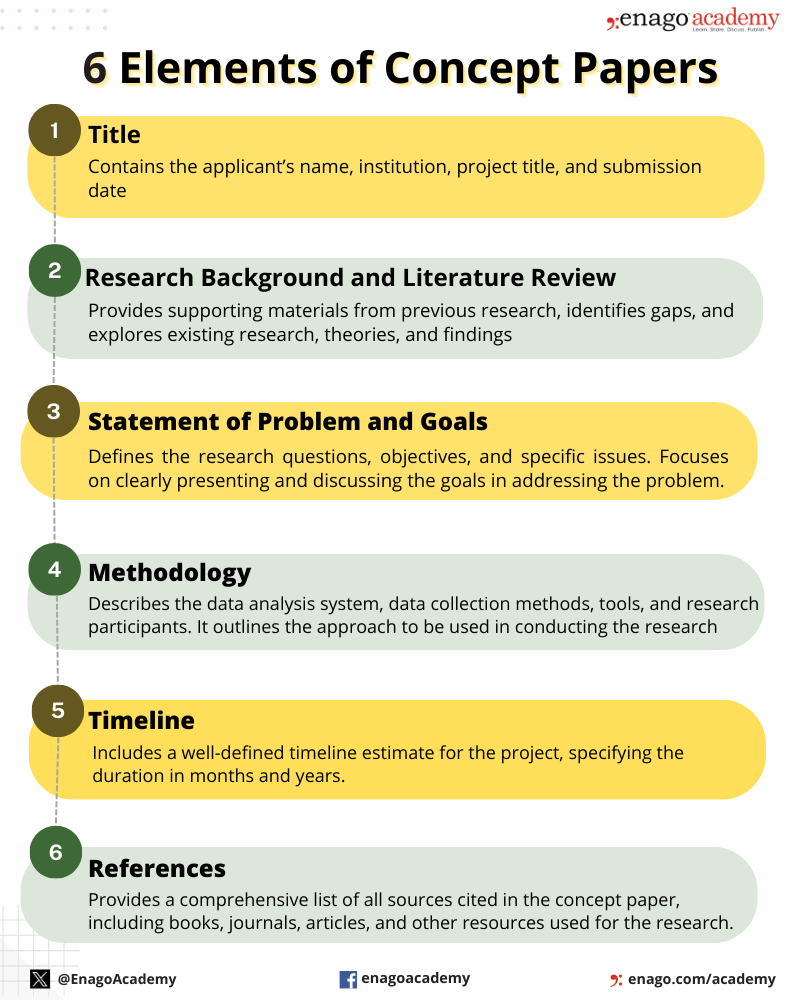
How to Write a Concept Paper?
To ensure an effective concept paper, it’s recommended to select a compelling research topic, pose numerous research questions and incorporate data and numbers to support the project’s rationale. The document must be concise (around five pages) after tailoring the content and following the formatting requirements. Additionally, infographics and scientific illustrations can enhance the document’s impact and engagement with the audience. The steps to write a concept paper are as follows:
1. Write a Crisp Title:
Choose a clear, descriptive title that encapsulates the main idea. The title should express the paper’s content. It should serve as a preview for the reader.
2. Provide a Background Information:
Give a background information about the issue or topic. Define the key terminologies or concepts. Review existing literature to identify the gaps your concept paper aims to fill.
3. Outline Contents in the Introduction:
Introduce the concept paper with a brief overview of the problem or idea you’re addressing. Explain its significance. Identify the specific knowledge gaps your research aims to address and mention any contradictory theories related to your research question.
4. Define a Mission Statement:
The mission statement follows a clear problem statement that defines the problem or concept that need to be addressed. Write a concise mission statement that engages your research purpose and explains why gaining the reader’s approval will benefit your field.
5. Explain the Research Aim and Objectives:
Explain why your research is important and the specific questions you aim to answer through your research. State the specific goals and objectives your concept intends to achieve. Provide a detailed explanation of your concept. What is it, how does it work, and what makes it unique?
6. Detail the Methodology:
Discuss the research methods you plan to use, such as surveys, experiments, case studies, interviews, and observations. Mention any ethical concerns related to your research.
7. Outline Proposed Methods and Potential Impact:
Provide detailed information on how you will conduct your research, including any specialized equipment or collaborations. Discuss the expected results or impacts of implementing the concept. Highlight the potential benefits, whether social, economic, or otherwise.
8. Mention the Feasibility
Discuss the resources necessary for the concept’s execution. Mention the expected duration of the research and specific milestones. Outline a proposed timeline for implementing the concept.
9. Include a Support Section:
Include a section that breaks down the project’s budget, explaining the overall cost and individual expenses to demonstrate how the allocated funds will be used.
10. Provide a Conclusion:
Summarize the key points and restate the importance of the concept. If necessary, include a call to action or next steps.
Although the structure and elements of a concept paper may vary depending on the specific requirements, you can tailor your document based on the guidelines or instructions you’ve been given.
Here are some tips to write a concept paper:
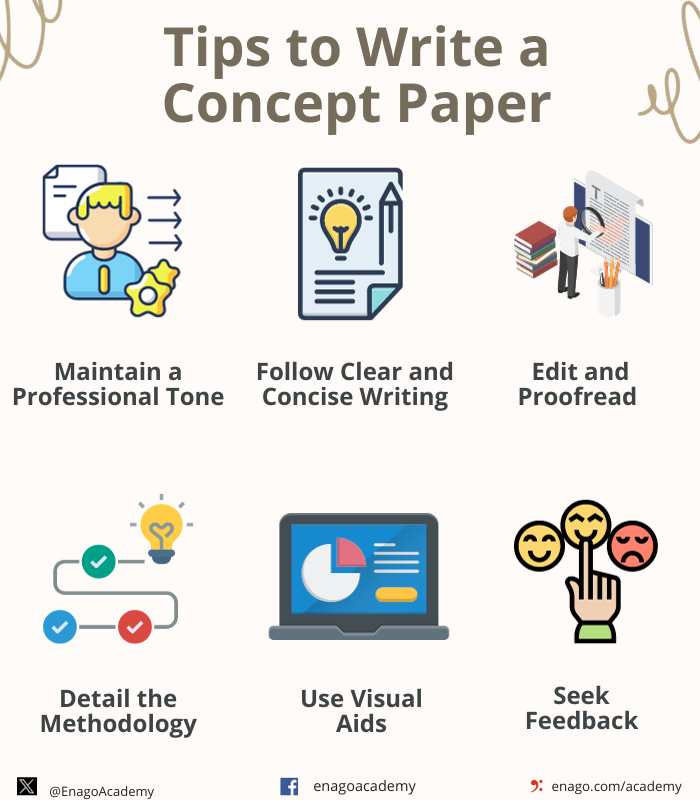
Example of a Concept Paper
Here is an example of a concept paper. Please note, this is a generalized example. Your concept paper should align with the specific requirements, guidelines, and objectives you aim to achieve in your proposal. Tailor it accordingly to the needs and context of the initiative you are proposing.
Download Now!
Importance of a Concept Paper
Concept papers serve various fields, influencing the direction and potential of research in science, social sciences, technology, and more. They contribute to the formulation of groundbreaking studies and novel ideas that can impact societal, economic, and academic spheres.
A concept paper serves several crucial purposes in various fields:
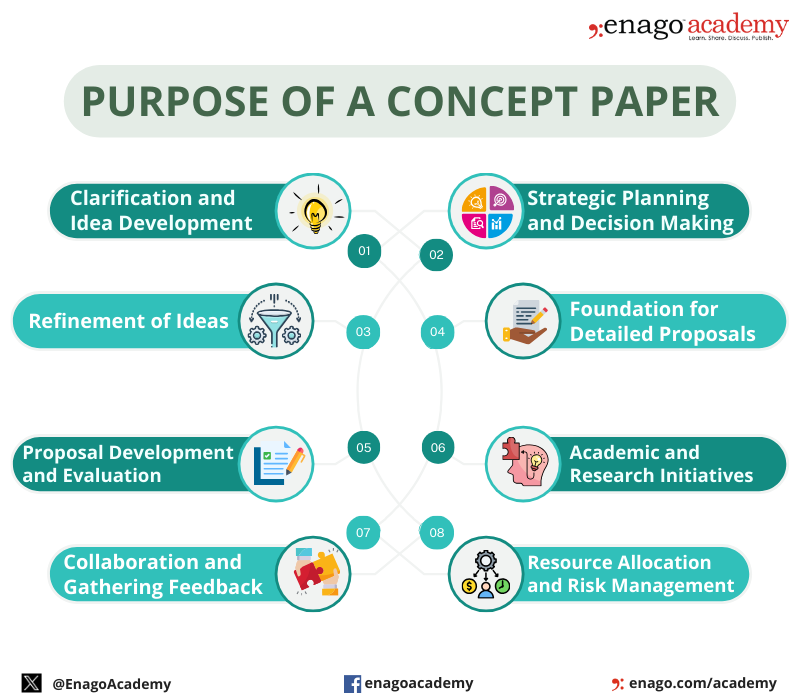
In summary, a well-crafted concept paper is essential in outlining a clear, concise, and structured framework for new ideas or proposals. It helps in assessing the feasibility, viability, and potential impact of the concept before investing significant resources into its implementation.
How well do you understand concept papers? Test your understanding now!
Fill the Details to Check Your Score

Role of AI in Writing Concept Papers
The increasing use of AI, particularly generative models, has facilitated the writing process for concept papers. Responsible use involves leveraging AI to assist in ideation, organization, and language refinement while ensuring that the originality and ethical standards of research are maintained.
AI plays a significant role in aiding the creation and development of concept papers in several ways:
1. Idea Generation and Organization
AI tools can assist in brainstorming initial ideas for concept papers based on key concepts. They can help in organizing information, creating outlines, and structuring the content effectively.
2. Summarizing Research and Data Analysis
AI-powered tools can assist in conducting comprehensive literature reviews, helping writers to gather and synthesize relevant information. AI algorithms can process and analyze vast amounts of data, providing insights and statistics to support the concept presented in the paper.
3. Language and Style Enhancement
AI grammar checker tools can help writers by offering grammar, style, and tone suggestions, ensuring professionalism. It can also facilitate translation, in case a global collaboration.
4. Collaboration and Feedback
AI platforms offer collaborative features that enable multiple authors to work simultaneously on a concept paper, allowing for real-time contributions and edits.
5. Customization and Personalization
AI algorithms can provide personalized recommendations based on the specific requirements or context of the concept paper. They can assist in tailoring the concept paper according to the target audience or specific guidelines.
6. Automation and Efficiency
AI can automate certain tasks, such as citation formatting, bibliography creation, or reference checking, saving time for the writer.
7. Analytics and Prediction
AI models can predict potential outcomes or impacts based on the information provided, helping writers anticipate the possible consequences of the proposed concept.
8. Real-Time Assistance
AI-driven chat-bots can provide real-time support and answers to specific questions related to the concept paper writing process.
AI’s role in writing concept papers significantly streamlines the writing process, enhances the quality of the content, and provides valuable assistance in various stages of development, contributing to the overall effectiveness of the final document.
Concept papers serve as the stepping stone in the research journey, aiding in the crystallization of ideas and the formulation of robust research proposals. It the cornerstone for translating ideas into impactful realities. Their significance spans diverse domains, from academia to business, enabling stakeholders to evaluate, invest, and realize the potential of groundbreaking concepts.
Frequently Asked Questions
A concept paper can be defined as a concise document outlining the fundamental aspects of a grant proposal such as the initial ideas, objectives, and theoretical framework of a proposed research project.
A good concept paper should offer a clear and comprehensive overview of the proposed research. It should demonstrate a strong understanding of the subject matter and outline a structured plan for its execution.
Concept paper is important to develop and clarify ideas, develop and evaluate proposal, inviting collaboration and collecting feedback, presenting proposals for academic and research initiatives and allocating resources.
I got wonderful idea
Rate this article Cancel Reply
Your email address will not be published.

Enago Academy's Most Popular Articles

- AI in Academia
- Trending Now
Simplifying the Literature Review Journey — A comparative analysis of 6 AI summarization tools
Imagine having to skim through and read mountains of research papers and books, only to…

- Reporting Research
How to Improve Lab Report Writing: Best practices to follow with and without AI-assistance
Imagine you’re a scientist who just made a ground-breaking discovery! You want to share your…

Achieving Research Excellence: Checklist for good research practices
Academia is built on the foundation of trustworthy and high-quality research, supported by the pillars…

- Industry News
COPE Forum Discussion Highlights Challenges and Urges Clarity in Institutional Authorship Standards
The COPE forum discussion held in December 2023 initiated with a fundamental question — is…

Research Recommendations – Guiding policy-makers for evidence-based decision making
Research recommendations play a crucial role in guiding scholars and researchers toward fruitful avenues of…

Sign-up to read more
Subscribe for free to get unrestricted access to all our resources on research writing and academic publishing including:
- 2000+ blog articles
- 50+ Webinars
- 10+ Expert podcasts
- 50+ Infographics
- 10+ Checklists
- Research Guides
We hate spam too. We promise to protect your privacy and never spam you.
I am looking for Editing/ Proofreading services for my manuscript Tentative date of next journal submission:

What should universities' stance be on AI tools in research and academic writing?

Community Blog
Keep up-to-date on postgraduate related issues with our quick reads written by students, postdocs, professors and industry leaders.
What is a Concept Paper and How do You Write One?
- By DiscoverPhDs
- August 26, 2020

What is a Concept Paper?
A concept paper is a short document written by a researcher before starting their research project, with the purpose of explaining what the study is about, why it is important and the methods that will be used.
The concept paper will include your proposed research title, a brief introduction to the subject, the aim of the study, the research questions you intend to answer, the type of data you will collect and how you will collect it. A concept paper can also be referred to as a research proposal.
What is the Purpose of a Concept Paper?
The primary aim of a research concept paper is to convince the reader that the proposed research project is worth doing. This means that the reader should first agree that the research study is novel and interesting. They should be convinced that there is a need for this research and that the research aims and questions are appropriate.
Finally, they should be satisfied that the methods for data collection proposed are feasible, are likely to work and can be performed within the specific time period allocated for this project.
The three main scenarios in which you may need to write a concept paper are if you are:
- A final year undergraduate or master’s student preparing to start a research project with a supervisor.
- A student submitting a research proposal to pursue a PhD project under the supervision of a professor.
- A principal investigator submitting a proposal to a funding body to secure financial support for a research project.
How Long is a Concept Paper?
The concept paper format is usually between 2 and 3 pages in length for students writing proposals for undergraduate, master’s or PhD projects. Concept papers written as part of funding applications may be over 20 pages in length.
How do you Write a Concept Paper?
There are 6 important aspects to consider when writing a concept paper or research proposal:
- 1. The wording of the title page, which is best presented as a question for this type of document. At this study concept stage, you can write the title a bit catchier, for example “Are 3D Printed Engine Parts Safe for Use in Aircraft?”.
- A brief introduction and review of relevant existing literature published within the subject area and identification of where the gaps in knowledge are. This last bit is particularly important as it guides you in defining the statement of the problem. The concept paper should provide a succinct summary of ‘the problem’, which is usually related to what is unknown or poorly understood about your research topic . By the end of the concept paper, the reader should be clear on how your research idea will provide a ‘solution’ to this problem.
- The overarching research aim of your proposed study and the objectives and/or questions you will address to achieve this aim. Align all of these with the problem statement; i.e. write each research question as a clear response to addressing the limitations and gaps identified from previous literature. Also give a clear description of your primary hypothesis.
- The specific data outputs that you plan to capture. For example, will this be qualitative or quantitative data? Do you plan to capture data at specific time points or at other defined intervals? Do you need to repeat data capture to asses any repeatability and reproducibility questions?
- The research methodology you will use to capture this data, including any specific measurement or analysis equipment and software you will use, and a consideration of statistical tests to help interpret the data. If your research requires the use of questionnaires, how will these be prepared and validated? In what sort of time frame would you plan to collect this data?
- Finally, include a statement of the significance of the study , explaining why your research is important and impactful. This can be in the form of a concluding paragraph that reiterate the statement of the problem, clarifies how your research will address this and explains who will benefit from your research and how.
You may need to include a short summary of the timeline for completing the research project. Defining milestones of the time points at which you intend to complete certain tasks can help to show that you’ve considered the practicalities of running this study. It also shows that what you have proposed is feasible in order to achieve your research goal.
If you’re pitching your proposed project to a funder, they may allocate a proportion of the money based on the satisfactory outcome of each milestone. These stakeholders may also be motivated by knowing that you intend to convert your dissertation into an article for journal publication; this level of dissemination is of high importance to them.
Additionally, you may be asked to provide a brief summary of the projected costs of running the study. For a PhD project this could be the bench fees associated with consumables and the cost of any travel if required.
Make sure to include references and cite all other literature and previous research that you discuss in your concept paper.
This guide gave you an overview of the key elements you need to know about when writing concept papers. The purpose of these are first to convey to the reader what your project’s purpose is and why your research topic is important; this is based on the development of a problem statement using evidence from your literature review.
Explain how it may positively impact your research field and if your proposed research design is appropriate and your planned research method achievable.

Stay up to date with current information being provided by the UK Government and Universities about the impact of the global pandemic on PhD research studies.

Find out the different dissertation and thesis binding options, which is best, advantages and disadvantages, typical costs, popular services and more.

Learning how to effectively collaborate with others is an important skill for anyone in academia to develop.
Join thousands of other students and stay up to date with the latest PhD programmes, funding opportunities and advice.

Browse PhDs Now

The unit of analysis refers to the main parameter that you’re investigating in your research project or study.

Carlos is a third year PhD student at the Centre for Doctoral Training in Intelligent Games and Games Intelligence (IGGI), as part of the University of York and Goldsmiths, University of London.

Kyle’s in the first year of his PhD at the University of Texas in Austin. His research interests are in the development of algorithms for advanced mobility for legged robotics and computer vision for exploration of extreme environments.
Join Thousands of Students
What exactly is a Concept Paper, and how do you write one?
Learn why a concept paper is important, what the main elements of a research concept paper are, and how to create an excellent one.
Prior to submitting a formal proposal (business proposal, product, or research proposal), many private organizations have historically asked for the submission of a concept paper for review.
Recently, organizations have begun to advocate for the usage of concept papers as a way for applicants to obtain informal input on their ideas and projects before submitting a proposal. Several of these organizations now demand a concept paper as part of the official application process.
Simply described, a concept paper is a preliminary document that explains the purpose of research, why it is being conducted, and how it will be performed. It examines a concept or idea and offers an outline of the topic that a researcher wants to pursue. Continue reading to learn more about concept papers and how to create a good one.
What a concept paper is and its purpose
A concept paper is a brief paper that outlines the important components of a research or project before it is carried out. Its purpose is to offer an overview. Entrepreneurs working on a business idea or product, as well as students and researchers, frequently write concept papers .
Researchers may be required to prepare a concept paper when submitting a project proposal to a funding authority to acquire the required grants.
As a consequence, the importance is based on the fact that it should help the examiner determine whether the research is relevant, practicable, and useful .
If not, they may suggest looking into a different research area. It also allows the examiner to assess your comprehension of the research and, as a result, if you are likely to require assistance in completing the research.
Illustrate your Concept Paper with infographics
Infographics are very useful to explain complex subjects in a very short time. Use Mind the Graph to create beautiful infographics for your Concept Paper with scientifically accurate illustrations, icons, arrows and many other design tools.
Concept paper’s elements for an academic research
To produce an effective concept paper, you must first comprehend the essential elements of academic research:
- Title page: Mention the applicant’s name, institution, project title, and submission date.
- Background for the research: The second section should be the purpose section, which should be able to clear out what has already been stated about the subject, any gaps in information that need to be filled or problems to be solved, as well as the reason why you wish to examine the issue.
- Literature review: In this section, you should provide a theoretical basis and supporting material for your chosen subject.
- State the problem and your goals: Describe the overall problems, including the research questions and objectives. State your research’s unique and original aspects, concentrate on providing and clearly discussing your goals towards the problem.
- Methodology: Provide the data analysis system to be utilized, data collecting method, tools to be used, and research participants in this section.
- Timeline: Include a realistic timeline estimate that is defined in months and years.
- References: Add a list of all sources cited in your concept paper , such as books, journals, and other resources.
Tips on writing an effective concept paper
A concept paper is extremely crucial for a project or research, especially if it requires funding. Check out these simple tips to ensure your concept paper is successful and simple.
- Choose a research topic that truly piques your curiosity
- Create a list of research questions. The more, the merrier.
- When describing the project’s reasoning, use data and numbers.
- Use no more than 5 single-spaced pages.
- Tailor your speech to the appropriate audience.
- Make certain that the basic format elements, such as page numbers, are included.
- Spend additional time on your timeline as this section is critical for funding.
- Give specific examples of how you plan to measure your progress toward your goals.
- Provide an initial budget when seeking funds. Sponsors will want to obtain an idea of how much funds are required.
Start creating infographics and scientific illustrations
Use the power of infographics and scientific illustrations to your advantage. Including graphic assets in your work may increase your authority and highlight all of the most valuable information, ensuring that your audience is engaged and completely comprehensive of the information you are providing.
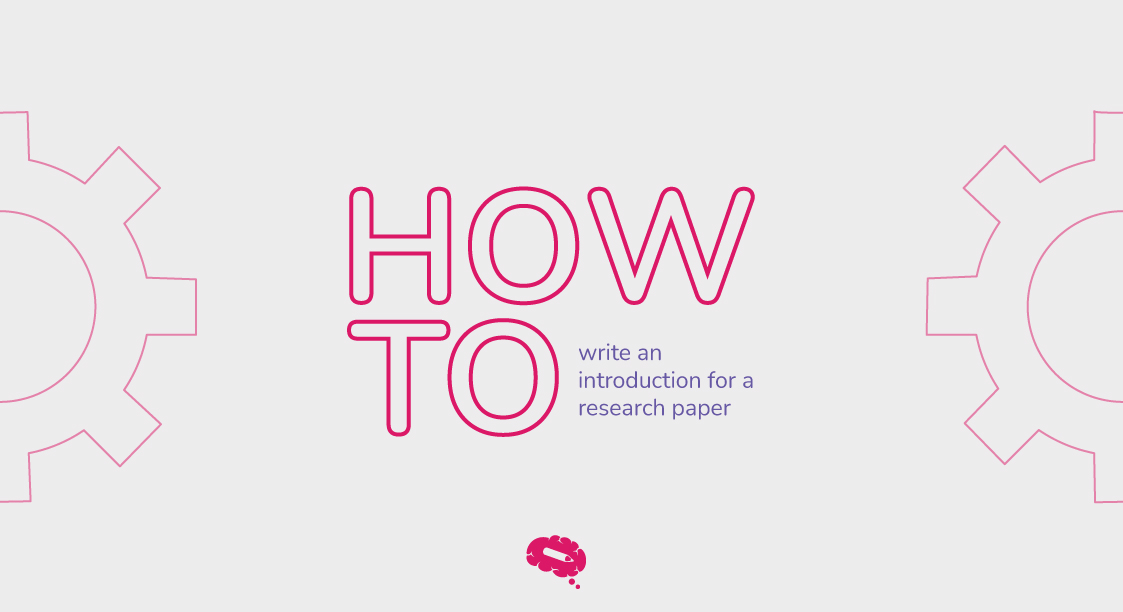
Subscribe to our newsletter
Exclusive high quality content about effective visual communication in science.
Sign Up for Free
Try the best infographic maker and promote your research with scientifically-accurate beautiful figures
no credit card required
About Jessica Abbadia
Jessica Abbadia is a lawyer that has been working in Digital Marketing since 2020, improving organic performance for apps and websites in various regions through ASO and SEO. Currently developing scientific and intellectual knowledge for the community's benefit. Jessica is an animal rights activist who enjoys reading and drinking strong coffee.
Content tags
- +44 7897 053596
- [email protected]

Get an experienced writer start working
Review our examples before placing an order, learn how to draft academic papers, how to craft an exceptional concept paper: a comprehensive guide.
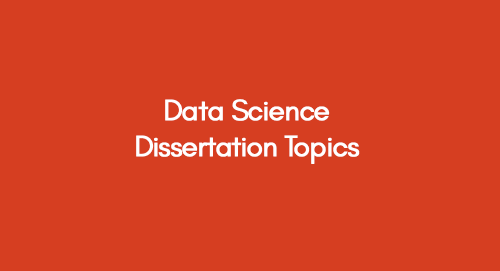
Data Science Dissertation Topics
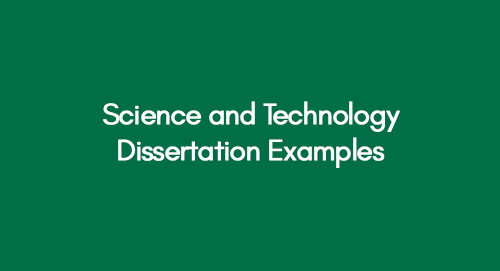
Science and Technology Dissertation Examples

Writing a concept paper is the first step toward writing your research module. It is also useful for presenting a business idea and submitting a business proposal.
Learn How to Write a Research Project: Tips and Examples
A concept paper refers to a brief summary of all your research components and ideas. It outlines the appealing draft of your research prospects and aims to present the primary goals of the research as well as the contribution it is going to make to the field of academia or business.
Find Our Quality Dissertation Topics Here
Review Our Latest Dissertation Examples Here
Below is a complete guideline for writing a concept paper, answering all your concept paper queries and presenting the best methods, techniques, tips, and various parts of writing an amazing concept paper.
3-Step Dissertation Process!

Get 3+ Topics

Dissertation Proposal

Get Final Dissertation
Concept paper introduction.
A concept paper is required to present the purpose of the research project before writing your research paper. Find below the concept paper’s definition, importance, and purpose in clear words.
What is a Concept Paper?
A concept paper simply answers “ what, why, and how ” about the research study.
It showcases the intent of the research project, the concept of what your proposed study aims at, what research goals you have kept in mind, why you are undertaking it, and how you are going to conduct and present your research. A concept paper example will help you overview the whole process of study or project on a piece of paper.
A research concept paper also highlights the importance of a research paper concerning the research subject and academia.
Importance of a Concept Paper
There is no denying the fact that the importance of a concept paper in research has increased multiple times in the modern age. Below are some of the testimonies to the need for this study.
The concept paper has become as necessary as the research study itself. It narrows down the key determinants of a complete research study, making it easy for the student or researcher to conduct the research project smoothly and in an organised way. Before writing a dissertation, a concept paper for a dissertation proposal allows the student to get his research ideas, intents, and methodologies approved by the instructor. This initial preparation paves the way for the student toward a high-scoring dissertation project in the end.
All these factors contribute greatly to the pivotal role and significance of a concept paper.
What is the Purpose of a Concept Paper?
The primary purpose of writing a concept paper is to convince the reader about the value and worth of the proposed research project. The concept paper aims to ensure that the presented research study would be beneficial by all means.
This means thereby the concept paper would develop an area of interest in the reader’s mind, who will come to the point of convergence that the proposed study is essential, interesting, and a novel idea for the field of research.
In addition, they would agree to the aims and objectives of the study and that the study is inevitable for the cause of research in the particular field of study.
Testimonials
Very satisfied students
This is our reason for working. We want to make all students happy, every day. Review us on Sitejabber
How to Write a Concept Paper? Essential Tips
The foremost step in writing your research project is to write your research concept paper. A winning research project inevitably requires an interesting concept paper that catches the attention of its readers and compels them to wait for the research study anxiously.
Below is a step-by-step guide on how to write an appealing concept paper in an effective manner.
- Choose an Interesting Research Topic
- Note Down the Key Areas of Research
- Develop an Inspiring Research Hypothesis
- Collection of Relevant Data
- Data Analysis to Answer the Hypothesis Questionnaire
- Choosing an Interesting and Meaningful Research Topic
In conducting any kind of research, the most important step is selecting a research topic that suits your interests and ideas.
Learn How to Write a Unique Dissertation Title: Tips and Examples
Your research or dissertation title should be relevant to your area of study as well as meet all your research aspirations. This means that your selected topic should lie within your academic study program and reflect your research queries with respect to that program.
While listing in the concept paper outline, your research topic should convey a clear and concise message about what you are going to conduct research on. Find below another significant source of information regarding the research topic.
At this stage of writing a concept paper, you are required to pen down the primary research areas that you need to focus on in the research work. First, you have to list down all your research queries that come up in your mind and for whom you are conducting this research to answer them. Then, you have to pick and choose the areas that interest you the most.
Learn How to Write Research Questions: Expert Tips with Examples
This is one of the most crucial stages of writing a concept paper. Here, you have to construct the hypothesis of your research study—the query you will answer in your study or the title you will discuss. A hypothesis is an informed or educated statement that belongs to your prior knowledge or previous research information about the topic. It is also called a guess that tries to prove or disapprove of the research study you will conduct.
Find Out How to Write a Strong Research Hypothesis
Data collection is another significant step in designing a concept paper. Here, you need to collect the data per your research study’s requirements. There are different types of data collection depending on the research study you are conducting.
Find How to Use Primary and Secondary Data for Research Study
The following are some significant data collection types;
- Primary Data: the first-hand knowledge or information collected from primary sources, such as real-time data or interviews of the concerned person.
- Secondary Data: the data collected from secondary sources of information, such as books, magazines, internet content, etc.
- Qualitative Data: non-numerical data collected through observations or face-to-face conversations.
- Quantitative Data: the data based on quantity, such as surveys, statistical figures, etc
The researcher collects data from the above-mentioned approaches suitable for their research study.
Review Example of Data Collection for Politics Dissertation
- Data Analysis for Developed Hypothesis
At this stage, the researcher needs to analyse the data collected from various sources for the proposed study. You have to find the data that best answers your hypothetical queries. You have to examine whether the available research data confirms your proposed study or disproves your research statement.
Find the Step-By-Step Guide to Dissertation Data Analysis
In other words, you have to fill the research gap (if available) regarding the concerned research subject conducted in the past by utilising your collected data for the proposed hypothesis efficiently and effectively.
How Does It Work?

Fill the Form
Please fill the free topic form and share your requirements

Writer Starts Working
The writer starts to find a topic for you (based on your requirements)

3+ Topics Emailed!
The writer shared custom topics with you within 24 hours
Concept Paper Methodology
The methodology in concept paper writing is a concise and outline-based draft. It summarizes the proposed research queries in a bulleted form to make it easy and understandable for the reader to have a brief idea about the research study.
It precisely mentions all key components or stages of the study, such as;
- Aims and Objectives
- Time duration
- Research Methodology
- The research findings
Structure of a Concept Paper
How to structure your concept paper? This is a million-dollar question, as it gives the final outlook of your concept paper.
- Learn How to Structure Your Dissertation for Optimum Impact
Find the essential components of your concept paper format below.
- Title of the Concept Paper
- Brief Introduction to the Problem Statement
- Importance of the Research Study—the Beneficiaries
- First-Hand Review of Literature
- Research Aims and Objectives
- Research Hypothesis
- Expected Timeline
i. Title of the Concept Paper
First, your concept paper must begin with a comprehensive title that should give the idea of your research project in clear and concise words. It should build the interest of the readers.
ii. Problem Statement
Second, define the problem statement of your research in definite terms without going too wordy. Your concept paper must answer the research question or elaborate on the statement in simple words.
iii. Importance of the Research
Third, the concept paper should consist of a pointer that briefly highlights the significance as well as the possible outcomes, benefits, and beneficiaries of this study.
iv. Initial Literature Review
Fourth, the concept paper should mention the possible results of the literature conducted in the past regarding your research study. Initial knowledge of previous literature is a must. A literature review provides insight into how you examine research data.
v. Purpose of the Research
Fifth, the aims and objectives of the research study should be clearly mentioned in your concept paper. There should be no ambiguity in this regard.
vi. Research Hypothesis
Sixth, developing a strong hypothesis is another important part of a concept paper and research study. The research hypothesis is a statement that best defines the problem statement as well as the objective of your research study.
vii. Research Methodology
Seventh, you should clearly elaborate on the type of research method you are going to use in your research study. The reader or professor must be able to understand the relation between your research and the type of research.
viii. Expected Time Period
Lastly, you should also mention the expected time period required to conduct the research study. The timeline in a concept paper helps in following a true direction for the completion of the project within the required time frame.
To cut it short, concept paper has assumed an important position in the fields of research development and business proposals. In this piece of writing, a comprehensive guide on how to write an exceptional concept paper has been provided to assist those looking to present their innovative business idea or conduct a useful research study. Various parts of a concept paper have been elaborated in a simple and concise manner. This sample concept paper for a project will surely assist you in kickstarting your dissertation journey with flying colours.
For further assistance in dissertation writing and editing, you may contact writers at premier dissertations.
Get an Immediate Response
Discuss your requirments with our writers
Get 3+ Free Dissertation Topics within 24 hours
Your Number
Academic Level Select Academic Level Undergraduate Masters PhD
Area of Research
Discover More:
Business Administration and MBA Dissertation Topics Construction Engineering Dissertation Topics Environment and Sustainability Dissertation Topics Project Management Dissertation Topics COVID-19 Dissertation Topics Business Management Dissertation Topics Health and Safety Dissertation Topics Cryptocurrency Dissertation Topics Cyber Security Dissertation Topics Education Dissertation-Topics
admin farhan
Related posts.
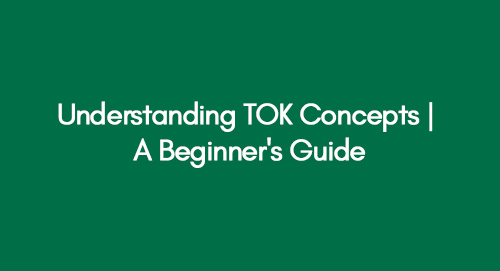
Understanding TOK Concepts: A Beginner’s Guide
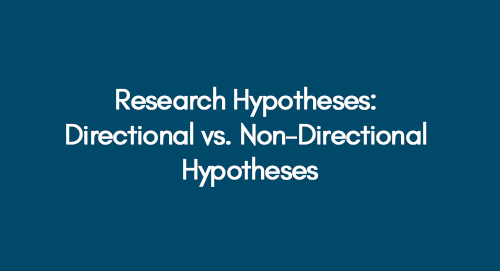
Research Hypotheses: Directional vs. Non-Directional Hypotheses

Is AP Psychology Hard? Exploring the Challenges and Rewards
Comments are closed.

When you embark on a journey to explore a new concept or present an innovative idea, one of the first steps you encounter is writing a concept paper. This document serves as a roadmap, guiding you through the process of articulating your thoughts and objectives.
In this comprehensive guide, we will walk you through the seven crucial steps to craft an effective concept paper. From defining your purpose to seeking feedback and revisions, we'll cover it all. So, let's dive in!
Why Is a Concept Paper Important?
Now that we understand what a concept paper is, let's explore why it holds such significance. A well-crafted concept paper:
Saves Time and Resources: Writing a concept paper allows you to assess the feasibility and relevance of your idea before investing significant time and resources in a full-fledged project. It acts as a filter, ensuring that only viable concepts move forward.
Clarity of Purpose: It helps you define your objectives clearly and ensures that everyone involved understands the concept's essence. This clarity aligns stakeholders and minimizes confusion.
Attracts Support: Whether you're seeking approval, funding, or collaboration, a compelling concept paper can pique the interest of potential stakeholders. It's your first opportunity to make a persuasive case for your idea.
Guides Your Work: It serves as a roadmap throughout your project or research, helping you stay on track and focused on your initial goals. It reminds you of the purpose behind your efforts, preventing distractions.
Step 1: Define Your Purpose

Clarify Your Objectives
To begin your journey, you must first clarify your objectives. What do you aim to achieve with your concept paper? Are you seeking funding, approval, or feedback? Define your purpose with crystal clarity. It will serve as your North Star throughout the concept paper writing process.
Before you can clearly define your objectives, consider asking yourself:
- What problem does your concept address?
- What are the expected outcomes or benefits?
- Who will benefit from your concept?
Your answers to these questions will help you establish your objectives effectively.
Identify Your Audience
Every piece of writing has an audience, and a concept paper is no exception. Identify who your target audience is. Is it a board of directors, potential investors, or your academic peers? Tailor your concept paper to resonate with the specific group you intend to address.
Understanding your audience is essential for crafting a concept paper that speaks directly to their interests and concerns. Consider their level of expertise in the subject matter and their expectations from your paper. Adjust your language, tone, and content accordingly.
Step 2: Choose a Topic

Selecting a Relevant and Engaging Concept
Your choice of topic can make or break your concept paper. Select a concept that is not only relevant but also engaging. Think about the problems it can solve, the questions it can answer, or the innovations it can bring. Ensure that your chosen concept resonates with your objectives.
When selecting a concept, follow these guidelines:
Relevance: Ensure your concept addresses a real and pressing issue. It should align with the goals of your organization or the objectives of your research.
Originality: While your concept can build upon existing ideas, it should offer a unique perspective or solution. Avoid rehashing well-trodden paths.
Feasibility: Assess whether your concept is feasible within the constraints of your project, budget, and timeline. A great concept that is impossible to execute won't be effective.
Narrowing Down Your Focus
Once you have a broad concept in mind, it's time to narrow down your focus. Consider the scope of your concept paper. Is it feasible to cover all aspects of your concept, or should you focus on a specific angle? Narrowing your focus ensures that your paper remains concise and impactful.
Narrowing down your focus involves:
Defining Boundaries: Clearly outline what your concept encompasses and what it excludes. This helps prevent scope creep and keeps your paper focused.
Identifying Key Components: Highlight the essential elements of your concept that you must discuss in your paper. These components should align with your objectives.
Prioritizing Information: Determine which information is crucial and which is supplementary. Focus on the critical aspects to maintain a clear and concise narrative.
Step 3: Research and Gather Information
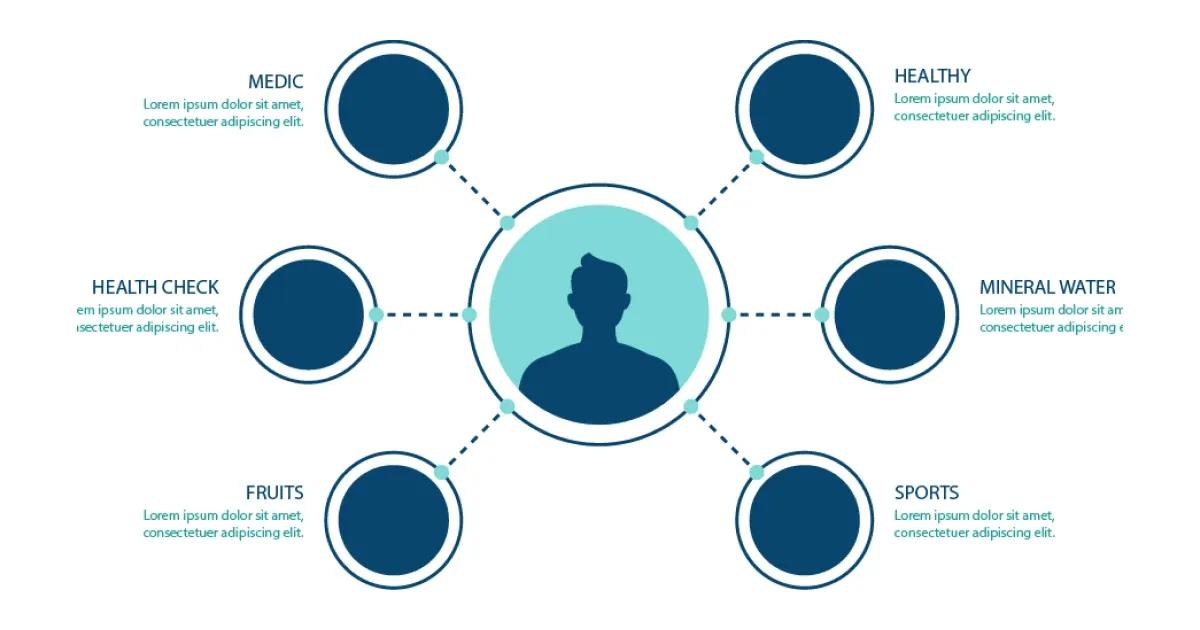
Conducting Preliminary Research
Research forms the backbone of any concept paper. Dive into the literature related to your chosen concept. Explore existing theories, studies, and relevant data. This preliminary research will help you understand the landscape and provide a solid foundation for your paper.
Preliminary research involves:
Literature Review: Conduct a thorough review of existing literature to understand the current state of knowledge in your chosen area.
Identifying Gaps: Identify gaps in the existing research or knowledge that your concept can fill. This will strengthen your case for its relevance.
Citing Sources: Keep meticulous records of the sources you consult. Accurate citations are crucial for establishing credibility.
Gathering Data and Supporting Evidence
In addition to existing research, you may need to gather new data or evidence to support your concept. Whether it's through surveys, experiments, or interviews, ensure that you have credible sources to back your claims. The strength of your concept paper often hinges on the quality of your supporting evidence.
When gathering data and evidence:
Use Multiple Sources: Rely on a variety of sources to strengthen your argument. This could include academic papers, expert interviews, statistical data, and case studies.
Maintain Objectivity: Present your data objectively and without bias. Transparency in your research methods is crucial.
Ensure Relevance: Make sure that the data and evidence you collect directly support the key points you want to make in your concept paper.

Step 4: Create an Outline

Organizing Your Thoughts
With a wealth of information at your disposal, it's time to organize your thoughts. Create an outline that outlines the structure of your concept paper. Consider the key sections: introduction, main body, and conclusion. Break down the content you want to include in each section.
Creating an outline involves:
Prioritizing Information: Determine the order in which you'll present your ideas. Start with the most important points and work your way down.
Logical Flow: Ensure that your outline follows a logical flow of ideas. Each section should naturally lead to the next, creating a coherent narrative.
Headings and Subheadings: Use headings and subheadings to further organize your content within each section. This makes your paper more reader-friendly.
Structuring Your Concept Paper
The structure of your concept paper should be logical and easy to follow. Start with a captivating introduction that hooks your readers. Then, in the main body, delve deep into the details of your concept, providing explanations, examples, and evidence. Finally, conclude by summarizing the key points and reiterating your purpose.
Structuring your concept paper involves:
Introduction: Craft an engaging introduction that not only introduces your concept but also captures the reader's interest. Use a hook, provide context, and clearly state your objectives.
Main Body: Divide the main body into sections, each addressing a specific aspect of your concept. Use clear transitions to guide readers through your arguments.
Conclusion: In the conclusion, summarize the key takeaways from your concept paper. Emphasize the significance of your concept and how it aligns with your objectives. End with a strong closing statement that leaves a lasting impression on your readers.
Step 5: Writing the Concept Paper

Introduction: Captivating Your Readers
Your introduction sets the tone for your concept paper. Craft it carefully to capture the attention of your readers. Start with a compelling hook, provide context for your concept, and clearly state your objectives. A well-written introduction can make your concept paper memorable.
When writing the introduction:
Hook Your Readers: Use a compelling anecdote, a thought-provoking question, or a surprising statistic to grab your readers' attention from the start.
Contextualize Your Concept: Provide background information to help readers understand the context and importance of your concept. Explain why it's relevant and timely.
State Clear Objectives: Be explicit about the objectives you aim to achieve with your concept paper. This helps set expectations for your readers.
Main Body: Explaining Your Concept
In the main body of your concept paper, you'll need to explain your concept in detail. Use clear and concise language to describe the concept, its significance, and how it addresses the identified problem or question. Support your explanations with evidence and examples to make your points more persuasive.
When writing the main body:
Clearly Define Your Concept: Begin by providing a clear and concise definition of your concept. Avoid jargon or overly complex language; strive for clarity.
Explain Significance: Detail why your concept is important. What problems or challenges does it solve? How does it contribute to the field or the organization's goals?
Provide Evidence: Back your claims with credible evidence. Cite relevant studies, data, or expert opinions to support your arguments.
Address Potential Concerns: Acknowledge and address any potential concerns or objections that readers may have about your concept. Demonstrating that you've considered these factors builds credibility.
Conclusion: Summarizing Key Points
In the conclusion, you have the opportunity to leave a lasting impression on your readers. Summarize the key points of your concept paper, emphasizing the significance of your concept and how it aligns with your objectives. Reiterate the call to action or the desired outcome.
When writing the conclusion:
Summarize Concisely: Summarize the main points of your concept paper succinctly. Avoid introducing new information in the conclusion.
Highlight Impact: Emphasize the impact and benefits of your concept. Clearly state how it can address the identified problem or contribute to the field.
Call to Action: Encourage readers to take the desired action, whether it's further discussion, funding support, or project implementation.
Step 6: Editing and Proofreading

Importance of Proofreading
Editing and proofreading are non-negotiable steps in the concept paper writing process. Typos, grammar errors, and inconsistencies can detract from the professionalism of your paper. Take the time to thoroughly edit and proofread your work or consider seeking assistance from a professional editor.
The importance of proofreading cannot be overstated. It ensures that your concept paper is error-free, clear, and polished. It also demonstrates your commitment to producing high-quality work.
Using a Copychecker Grammar Checker Tool
One invaluable tool for proofreading is the Copychecker grammar checker tool. These tools use advanced algorithms to identify and correct grammar and spelling errors. They also offer suggestions for improving sentence structure and clarity, ensuring that your concept paper is polished and error-free.
Benefits of Copychecker Grammar Checker
Copychecker Grammar checker offer several benefits:
Time Efficiency: They expedite the proofreading process, saving you time and effort.
Enhanced Clarity: They suggest improvements to sentence structure and wording, helping you convey your ideas more effectively.
Error Prevention: They catch errors that may go unnoticed by the human eye, ensuring a higher level of accuracy.
Step-by-Step Guide to Using Copychecker
To make the most of Copychecker, follow these steps:
Choose a Reliable Tool: Select a reputable grammar checker tool, such as Grammarly or Copychecker . These tools are widely used and trusted for their accuracy.
Upload Your Text: Copy and paste your concept paper into the tool or upload the document directly.
Review Suggestions: Carefully review the grammar and style suggestions provided by the tool. Pay attention to both minor and major issues.
Make Corrections: Accept or reject suggestions as needed, making corrections to your paper. Use your judgment to ensure that the suggested changes enhance the clarity and flow of your writing.
Final Proofread: After using the grammar checker, perform a final proofread to ensure your paper flows smoothly and is free of errors. While grammar checkers are powerful, they may not catch every nuance or context-specific issue.
Step 7: Seek Feedback and Revise

Getting Input from Peers or Experts
Once you've edited and proofread your concept paper, it's time to seek feedback. Share your paper with peers, mentors, or experts in your field. Their insights can provide valuable perspectives and help you refine your paper further.
When seeking feedback:
Choose the Right Audience: Select individuals who are knowledgeable in your subject matter and can offer constructive feedback.
Ask Specific Questions: Guide your reviewers by asking specific questions about areas you want them to focus on, such as clarity, organization, or argument strength.
Be Open to Criticism: Be receptive to both positive feedback and constructive criticism. Remember that the goal is to improve your concept paper.
Making Revisions Based on Feedback
Be open to constructive criticism and be prepared to make revisions based on the feedback you receive. This collaborative approach can result in a stronger and more polished concept paper.
When making revisions:
Prioritize Feedback: Address the most critical feedback first. Focus on areas where improvements will have the most significant impact on your concept paper.
Maintain Clarity: Ensure that your revisions enhance the clarity and coherence of your paper. Your goal is to make it as accessible as possible to your target audience.
Maintain a Unified Voice: While incorporating feedback, ensure that your concept paper maintains a consistent voice and style throughout.
What is a Concept Paper?
A concept paper is a concise document that outlines a particular concept or idea. It serves as a preliminary proposal, providing a clear and structured explanation of the concept's significance, objectives, and potential impact.
How to Write a Nursing Concept Analysis Paper?
Writing a nursing concept analysis paper involves a systematic examination of a specific nursing concept, such as pain management or patient empowerment. Start by selecting a well-defined nursing concept, then review relevant literature, identify key attributes and characteristics of the concept, and create a clear conceptual framework.
How to Write a Concept Analysis Paper?
Writing a concept analysis paper, regardless of the field, follows a structured approach. Begin by selecting a concept of interest and conducting a comprehensive literature review. Define the concept, identify its attributes, antecedents, and consequences, and develop a conceptual model or framework.
What are the Key Components of a Concept Paper?
A concept paper typically consists of several key components, including the introduction, background or literature review, statement of the problem or purpose, conceptual framework, methodology (if applicable), main body, conclusion, and references.
How Can I Ensure Clarity and Conciseness in a Concept Paper?
Clarity and conciseness are essential in a concept paper. To achieve this, focus on using straightforward language, avoid unnecessary jargon, and provide clear explanations. Be concise in your writing, eliminating redundancy and ensuring that each sentence contributes to the overall understanding of the concept.
In conclusion, writing a concept paper is a crucial step in bringing your innovative ideas to life. It serves as a powerful tool to communicate your vision, secure support, and guide your project's development. By following the seven steps outlined in this guide and leveraging tools like grammar checkers, you can create a concept paper that captivates your audience and sets you on the path to success.
Remember, the value of a well-written concept paper cannot be overstated. So, go ahead, put your thoughts into words, and watch your concepts come to life. Your journey of research or project development starts here.

Safeguarding Good Writing Practices and Navigating AI Misuse: 5 Easy Tips
Discover 5 simple tips for preserving strong writing standards and avoiding AI misuse in our guide: 'Safeguarding Good Writing Practices.
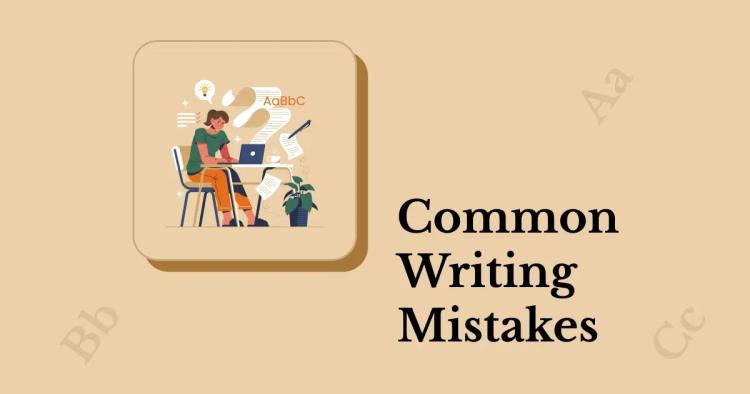
Common Writing Mistakes In College Papers
Plagiarism takes various forms: copy-pasting, paraphrasing, mosaic, and self-plagiarism. Understanding them is crucial for academic and creative integrity.

How to Make a Table of Contents With Ease
Craft a seamless Table of Contents effortlessly using headers, formatting tools, and clear organization for an organized and accessible document.
- PRO Courses Guides New Tech Help Pro Expert Videos About wikiHow Pro Upgrade Sign In
- EDIT Edit this Article
- EXPLORE Tech Help Pro About Us Random Article Quizzes Request a New Article Community Dashboard This Or That Game Popular Categories Arts and Entertainment Artwork Books Movies Computers and Electronics Computers Phone Skills Technology Hacks Health Men's Health Mental Health Women's Health Relationships Dating Love Relationship Issues Hobbies and Crafts Crafts Drawing Games Education & Communication Communication Skills Personal Development Studying Personal Care and Style Fashion Hair Care Personal Hygiene Youth Personal Care School Stuff Dating All Categories Arts and Entertainment Finance and Business Home and Garden Relationship Quizzes Cars & Other Vehicles Food and Entertaining Personal Care and Style Sports and Fitness Computers and Electronics Health Pets and Animals Travel Education & Communication Hobbies and Crafts Philosophy and Religion Work World Family Life Holidays and Traditions Relationships Youth
- Browse Articles
- Learn Something New
- Quizzes Hot
- This Or That Game New
- Train Your Brain
- Explore More
- Support wikiHow
- About wikiHow
- Log in / Sign up
- Finance and Business
- Business Skills
- Business Writing
How to Write a Concept Paper
Last Updated: March 20, 2023 Fact Checked
This article was co-authored by wikiHow Staff . Our trained team of editors and researchers validate articles for accuracy and comprehensiveness. wikiHow's Content Management Team carefully monitors the work from our editorial staff to ensure that each article is backed by trusted research and meets our high quality standards. This article has been fact-checked, ensuring the accuracy of any cited facts and confirming the authority of its sources. This article has been viewed 1,627,056 times. Learn more...
If you’ve got a great idea for a new product, program, or service, writing a concept paper is one way to seek funding for it. Concept papers describe the purpose and projected outcomes of the project, and are delivered to potential sponsors. To create a successful one, use clear, passionate language that expresses why your project matters, and who will benefit from it. Above all, show the sponsor that the goals of your project match up with the kinds of initiatives they want to support.
Sample Concept Papers

Establishing the Purpose

- For instance, you could start off your paper with an attention-grabbing statistic related to your project: “Every year, 10.5 million pounds of food go to waste due to one common pest: rats.”
- Giving your concept paper a descriptive title, like “Lock the Rat Box: Humane, Hands-Free Rodent Control,” is another good way to grab their attention.

- Try something like: “The Savco Foundation has long been committed to funding projects that foster healthy communities. We have developed Lock the Rat Box as an easy, cost-effective means to lower illness rates and sanitation costs in municipalities, and are seeking your support for the project.”

- For instance, your concept paper could include a statement like: “Rats are a nuisance, but also a serious vector of diseases such as rabies and the bubonic plague. Municipalities across the United States spend upwards of twenty million dollars a year combating these issues.”
- Include references to verify any data you cite.
Explaining How your Concept Works

- For instance, your project may involve building a prototype device to humanely trap rats.
- Your methods might also involve activities. For instance, you may propose advertising programs to educate communities about rat problems, or sending investigators to study the extent of the issue in various communities.

- Try using statements like: “While previous governmental services have explained rat infestations via poster, radio, and television campaigns, they have not taken advantage of social media as a means of connecting with community members. Our project fills that gap.”

- For example: “February 2018: sign a lease for a workshop space. Late February 2018: purchase materials for Lock the Rat Box prototype. March 2018: conduct preliminary tests of the prototype.”

- Other assessment tools could include things like surveys to gauge customer satisfaction, community involvement, or other metrics.

- Personnel, including any assistants
- Equipment and supplies
- Consultants you may need to bring in
- Space (rent, for example)

Reviewing the Draft

- If the application requests a particular format, follow the directions exactly.
- Otherwise, type your paper in a standard font at a readable size (12 point is good), number your pages, and use reasonable margins (1 inch all around is fine).

- For instance, avoid statements like “We believe that our product, Lock the Rat Box, could potentially help certain municipalities at least control rat infestations.”
- A stronger statement would be: “Lock the Rat Box will curtail rat infestations in any mid-sized municipality, and completely eradicate them in many cases.”

- If you are writing for a general, non-expert audience, ask someone unfamiliar with your project to read your concept paper and tell you if there were any parts they did not understand.

- Have someone who has not previously read your concept paper take a look at the final draft before you submit it. They’ll be more likely to catch any lingering errors.
Community Q&A
You Might Also Like

- ↑ https://www.aub.edu.lb/ogc/Documents/Writing_Concept_Paper.pdf
- ↑ https://ovpr.uconn.edu/wp-content/uploads/sites/2557/2018/09/How-to-Write-a-Concept-Paper.pdf
- ↑ https://www.ias.edu/sites/default/files/media-assets/Guidance%20Doc_Concept%20Paper.pdf
- ↑ https://www.umass.edu/cfr/grant-writing/guidelines-letter-intent
About This Article

To write a concept paper for a new product, program, or service, start with a descriptive, attention-grabbing title. Then, explain why you’re approaching the sponsor by describing what your project goals have in common with their company mission. Next, describe the problem you want to solve, and the methods you’ll use in order to solve it. Additionally, include a timeline for implementing your methods, and a preliminary budget with a list of the estimated costs. Finally, end your paper with a short summary reiterating your project’s purpose. For more advice, including how to make your paper stand out with proper formatting and action-oriented language, keep reading. Did this summary help you? Yes No
- Send fan mail to authors
Reader Success Stories
Kathryn Torres
Jul 17, 2020
Did this article help you?

Ongole Churchill
Jun 17, 2016
Ruth Denson
Mar 6, 2020
Naseem Khan
Apr 4, 2019
Kumudham Sandrasegaran
Oct 5, 2018

Featured Articles

Trending Articles

Watch Articles

- Terms of Use
- Privacy Policy
- Do Not Sell or Share My Info
- Not Selling Info
wikiHow Tech Help Pro:
Develop the tech skills you need for work and life
We use cookies on this site to enhance your experience
By clicking any link on this page you are giving your consent for us to set cookies.
A link to reset your password has been sent to your email.
Back to login
We need additional information from you. Please complete your profile first before placing your order.
Thank you. payment completed., you will receive an email from us to confirm your registration, please click the link in the email to activate your account., there was error during payment, orcid profile found in public registry, download history, understanding and developing a concept paper.
- Charlesworth Author Services
- 15 December, 2021
A concept paper, simply put, is a one- to two-page written document describing an idea for a project . At this stage, there is no need to flesh out details, but rather just introduce the overall rationale of the project, how it’ll be carried out and the expected outcomes. There is no hard rule as to how this should be structured, but below are some tips on what to include and why to include them.
Discuss the rationale
The need for the project is an important aspect to address, and is often something a funding body might look for when considering funding a project. A concept paper might be the first thing a funding round requests to get an idea of what the project is all about. So make sure that it includes:
- Importance of the work being proposed
- What the impact (not the same as ‘ impact factor ’ – see later below) will be
- How the outcomes of your project might meet or respond to the need
- Priorities of your intended audience
Outline your methodology and procedures
Your overall methodology , i.e. how you intend to approach your work, should be outlined here to give your reader an idea of how you propose to achieve your research objectives. Mentioning the proposed methodology in advance allows them to conduct an independent evaluation into whether it is a valid approach.
Further, you should highlight some exciting, specific procedures or methods that you might be especially well-placed to perform. For example, your institute may have a specific piece of equipment, or you may have access to very high quality expertise. This will inspire confidence in the review panel that you are well-positioned to take the project on.
Describe the potential impact
Impact is a term often thrown around in research circles, usually relating to the ‘impact factor’ of a journal. Impact in this instance does not refer to that. The impact that you should be describing here is the real-world impact of your work.
Will your idea or innovation change people’s lives? Will it save the taxpayer money? How will it do those things?
Make sure you describe impacts that go beyond discovering something new to shaking up your research community.
A concept paper is a loose framework by which you are able to quickly communicate an idea for a piece of work you might want to do in the future. At the very least, it can help you put ideas to paper and look at them as a whole, allowing you to critically assess what is needed to make it a reality. In the best case scenario, a concept paper might be used to advance your grant applications or attract investment for your idea. Whatever you are using it for, it is a valuable piece of writing that can help you formalise your idea and make it a reality.
Read next (second) in series: Writing a successful Research Proposal
Maximise your publication success with Charlesworth Author Services.
Charlesworth Author Services, a trusted brand supporting the world’s leading academic publishers, institutions and authors since 1928.
To know more about our services, visit: Our Services
Share with your colleagues
Related resources.

Writing a successful Research Proposal
Charlesworth Author Services 08/03/2022 00:00:00

Concept Paper vs. Research Proposal – and when to use each

Preparing and writing your PhD Research Proposal
Charlesworth Author Services 02/08/2021 00:00:00
Related webinars

Bitesize Webinar: Writing Competitive Grant Proposals: Module 1- Unpacking the Request for Proposals
Charlesworth Author Services 09/03/2021 00:00:00

Bitesize Webinar: Writing Competitive Grant Proposals: Module 2- Choosing the Right Funder

Bitesize Webinar: Writing Competitive Grant Proposals: Module 3- Structuring the Proposal

Bitesize Webinar: Writing Competitive Grant Proposals: Module 4- Developing a Grant Budget

How to write the Rationale for your research
Charlesworth Author Services 19/11/2021 00:00:00

A guide to finding the right Funding Agency for your project
Charlesworth Author Services 27/01/2021 00:00:00

Difference between Methodology and Method
Charlesworth Author Services 15/12/2021 00:00:00
How To Write a Concept Paper for Academic Research: An Ultimate Guide
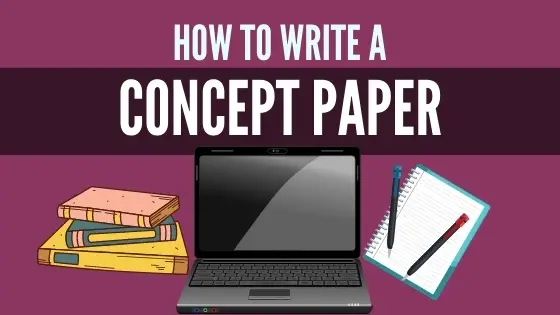
A concept paper is one of the first steps in helping you fully realize your research project. Because of this, some schools opt to teach students how to write concept papers as early as high school. In college, professors sometimes require their students to submit concept papers before suggesting their research projects to serve as the foundations for their theses.
If you’re reading this right now, you’ve probably been assigned by your teacher or professor to write a concept paper. To help you get started, we’ve prepared a comprehensive guide on how to write a proper concept paper.
Related: How to Write Significance of the Study (with Examples)
Table of Contents
What is the concept paper, 1. academic research concept papers, 2. advertising concept papers, 3. research grant concept papers, concept paper vs. research proposal, tips for finding your research topic, 2. think of research questions that you want to answer in your project, 3. formulate your research hypothesis, 4. plan out how you will achieve, analyze, and present your data, 2. introduction, 3. purpose of the study, 4. preliminary literature review, 5. objectives of the study, 6. research questions and hypotheses, 7. proposed methodology, 8. proposed research timeline, 9. references, sample concept paper for research proposal (pdf), tips for writing your concept paper.
Generally, a concept paper is a summary of everything related to your proposed project or topic. A concept paper indicates what the project is all about, why it’s important, and how and when you plan to conduct your project.
Different Types of the Concept Paper and Their Uses

This type of concept paper is the most common type and the one most people are familiar with. Concept papers for academic research are used by students to provide an outline for their prospective research topics.
These concept papers are used to help students flesh out all the information and ideas related to their topic so that they may arrive at a more specific research hypothesis.
Since this is the most common type of concept paper, it will be the main focus of this article.
Advertising concept papers are usually written by the creative and concept teams in advertising and marketing agencies.
Through a concept paper, the foundation or theme for an advertising campaign or strategy is formed. The concept paper can also serve as a bulletin board for ideas that the creative and concept teams can add to or develop.
This type of concept paper usually discusses who the target audience of the campaign is, what approach of the campaign will be, how the campaign will be implemented, and the projected benefits and impact of the campaign to the company’s sales, consumer base, and other aspects of the company.
This type of concept paper is most common in the academe and business world. Alongside proving why your research project should be conducted, a research grant concept paper must also appeal to the company or funding agency on why they should be granted funds.
The paper should indicate a proposed timeline and budget for the entire project. It should also be able to persuade the company or funding agency on the benefits of your research project– whether it be an increase in sales or productivity or for the benefit of the general public.
It’s important to discuss the differences between the two because a lot of people often use these terms interchangeably.
A concept paper is one of the first steps in conducting a research project. It is during this process that ideas and relevant information to the research topic are gathered to produce the research hypothesis. Thus, a concept paper should always precede the research proposal.
A research proposal is a more in-depth outline of a more fleshed-out research project. This is the final step before a researcher can conduct their research project. Although both have similar elements and structures, a research proposal is more specific when it comes to how the entire research project will be conducted.
Getting Started on Your Concept Paper
1. find a research topic you are interested in.
When choosing a research topic, make sure that it is something you are passionate about or want to learn more about. If you are writing one for school, make sure it is still relevant to the subject of your class. Choosing a topic you aren’t invested in may cause you to lose interest in your project later on, which may lower the quality of the research you’ll produce.
A research project may last for months and even years, so it’s important that you will never lose interest in your topic.
- Look for inspiration everywhere. Take a walk outside, read books, or go on your computer. Look around you and try to brainstorm ideas about everything you see. Try to remember any questions you might have asked yourself before like why something is the way it is or why can’t this be done instead of that .
- Think big. If you’re having trouble thinking up a specific topic to base your research project on, choosing a broad topic and then working your way down should help.
- Is it achievable? A lot of students make the mistake of choosing a topic that is hard to achieve in terms of materials, data, and/or funding available. Before you decide on a research topic, make sure you consider these aspects. Doing so will save you time, money, and effort later on.
- Be as specific as can be. Another common mistake that students make is that they sometimes choose a research topic that is too broad. This results in extra effort and wasted time while conducting their research project. For example: Instead of “The Effects of Bananas on Hungry Monkeys” , you could specify it to “The Effects of Cavendish Bananas on Potassium-deficiency in Hungry Philippine Long-tailed Macaques in Palawan, Philippines”.
Now that you have a general idea of the topic of your research project, you now need to formulate research questions based on your project. These questions will serve as the basis for what your project aims to answer. Like your research topic, make sure these are specific and answerable.
Following the earlier example, possible research questions could be:
- Do Cavendish bananas produce more visible effects on K-deficiency than other bananas?
- How susceptible are Philippine long-tailed macaques to K-deficiency?
- What are the effects of K-deficiency in Philippine long-tailed macaques?
After formulating the research questions, you should also provide your hypothesis for each question. A research hypothesis is a tentative answer to the research problem. You must provide educated answers to the questions based on your existing knowledge of the topic before you conduct your research project.
After conducting research and collecting all of the data into the final research paper, you will then have to approve or disprove these hypotheses based on the outcome of the project.
Prepare a plan on how to acquire the data you will need for your research project. Take note of the different types of analysis you will need to perform on your data to get the desired results. Determine the nature of the relationship between different variables in your research.
Also, make sure that you are able to present your data in a clear and readable manner for those who will read your concept paper. You can achieve this by using tables, charts, graphs, and other visual aids.
Related: How to Make Conceptual Framework (with Examples and Templates)
Generalized Structure of a Concept Paper
Since concept papers are just summaries of your research project, they are usually short and no longer than 5 pages. However, for big research projects, concept papers can reach up to more than 20 pages.
Your teacher or professor may give you a certain format for your concept papers. Generally, most concept papers are double-spaced and are less than 500 words in length.
Even though there are different types of concept papers, we’ve provided you with a generalized structure that contains elements that can be found in any type of concept paper.
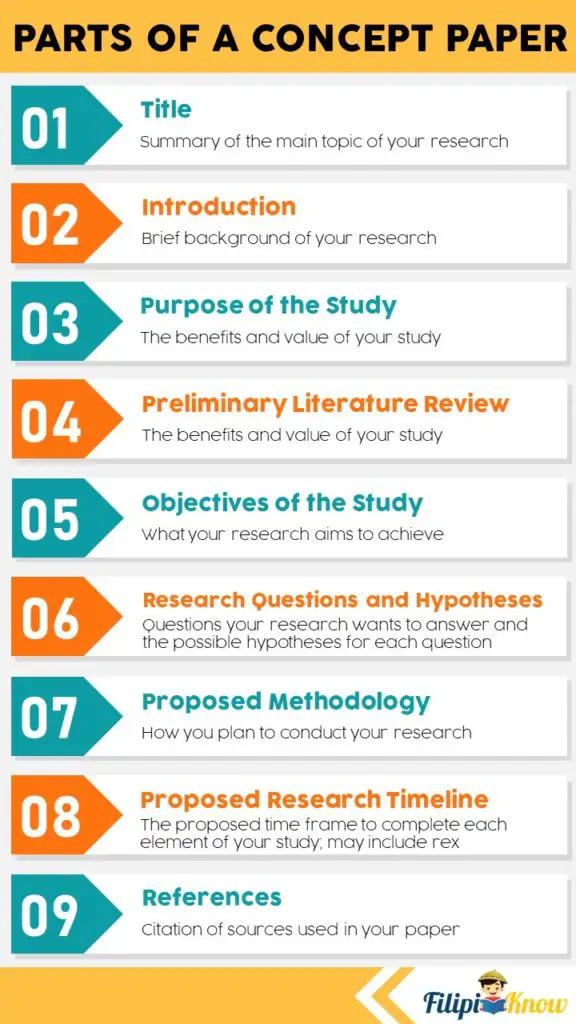
The title for your paper must be able to effectively summarize what your research is all about. Use simple words so that people who read the title of your research will know what it’s all about even without reading the entire paper.
The introduction should give the reader a brief background of the research topic and state the main objective that your project aims to achieve. This section should also include a short overview of the benefits of the research project to persuade the reader to acknowledge the need for the project.
The Purpose of the Study should be written in a way that convinces the reader of the need to address the existing problem or gap in knowledge that the research project aims to resolve. In this section, you have to go into more detail about the benefits and value of your project for the target audience/s.
This section features related studies and papers that will support your research topic. Use this section to analyze the results and methodologies of previous studies and address any gaps in knowledge or questions that your research project aims to answer. You may also use the data to assert the importance of conducting your research.
When choosing which papers and studies you should include in the Preliminary Literature Review, make sure to choose relevant and reliable sources. Reliable sources include academic journals, credible news outlets, government websites, and others. Also, take note of the authors for the papers as you will need to cite them in the References section.
Simply state the main objectives that your research is trying to achieve. The objectives should be able to indicate the direction of the study for both the reader and the researcher. As with other elements in the paper, the objectives should be specific and clearly defined.
Gather the research questions and equivalent research hypotheses you formulated in the earlier step and list them down in this section.
In this section, you should be able to guide the reader through the process of how you will conduct the research project. Make sure to state the purpose for each step of the process, as well as the type of data to be collected and the target population.
Depending on the nature of your research project, the length of the entire process can vary significantly. What’s important is that you are able to provide a reasonable and achievable timeline for your project.
Make sure the time you will allot for each component of your research won’t be too excessive or too insufficient so that the quality of your research won’t suffer.
Ensure that you will give credit to all the authors of the sources you used in your paper. Depending on your area of study or the instructions of your professor, you may need to use a certain style of citation.
There are three main citation styles: the American Psychological Association (APA), Modern Language Association (MLA), and the Chicago style.
The APA style is mostly used for papers related to education, psychology, and the sciences. The APA citation style usually follows this format:
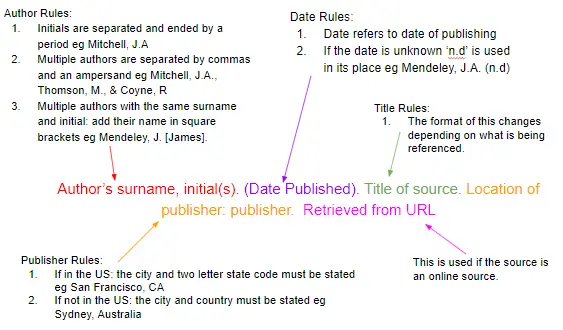
The MLA citation style is the format used by papers and manuscripts in disciplines related to the arts and humanities. The MLA citation style follows this format:
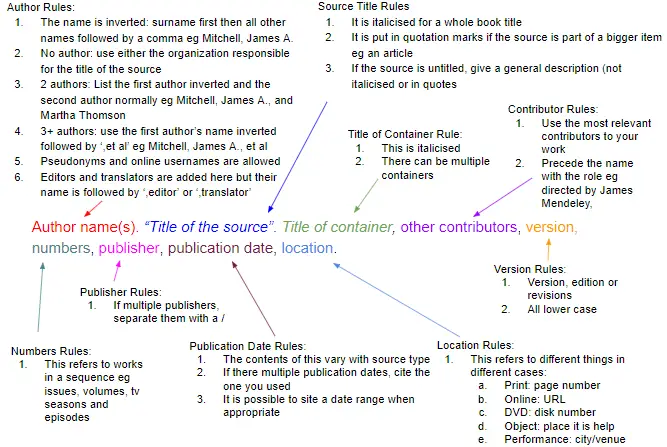
The Chicago citation style is usually used for papers related to business, history, and the fine arts. It follows this citation format:

This is a concept paper sample provided by Dr. Bernard Lango from the Jomo Kenyatta University of Agriculture and Technology (modified for use in this article). Simply click the link above the download the PDF file.
- Use simple, concise language. Minimize the use of flowery language and always try to use simple and easy-to-understand language. Too many technical or difficult words in your paper may alienate your readers and make your paper hard to read.
- Choose your sources wisely. When scouring the Internet for sources to use, you should always be wary and double-check the authenticity of your source. Doing this will increase the authenticity of your research project’s claims and ensure better data gathered during the process.
- Follow the specified format, if any. Make sure to follow any specified format when writing your concept paper. This is very important, especially if you’re writing your concept paper for class. Failure to follow the format will usually result in point deductions and delays because of multiple revisions needed.
- Proofread often. Make it a point to reread different sections of your concept paper after you write them. Another way you can do this is by taking a break for a few days and then coming back to proofread your writing. You may notice certain areas you’d like to revise or mistakes you’d like to fix. Make proofreading a habit to increase the quality of your paper.
Written by Ruth Raganit
in Career and Education , Juander How
Last Updated May 30, 2022 04:34 PM
Ruth Raganit
Ruth Raganit obtained her Bachelor of Science degree in Geology from the University of the Philippines – Diliman. Her love affair with Earth sciences began when she saw a pretty rock and wondered how it came to be. She also likes playing video games, doing digital art, and reading manga.
Browse all articles written by Ruth Raganit
Copyright Notice
All materials contained on this site are protected by the Republic of the Philippines copyright law and may not be reproduced, distributed, transmitted, displayed, published, or broadcast without the prior written permission of filipiknow.net or in the case of third party materials, the owner of that content. You may not alter or remove any trademark, copyright, or other notice from copies of the content. Be warned that we have already reported and helped terminate several websites and YouTube channels for blatantly stealing our content. If you wish to use filipiknow.net content for commercial purposes, such as for content syndication, etc., please contact us at legal(at)filipiknow(dot)net
What Is a Concept Paper: Definition, Format, and Example
- Concept Paper Definition
- Concept Paper Format
- How to Write a Concept Paper
- 2. Introduction to the concept
- 3. Background research
- 4. Objectives
- 5. Need for the study
- 6. Research methodology
- 7. References
- Conceptual Paper Example
- Introduction
- Background Research
- Aim and Need for the Study
- Research Methodology
- Concept Paper Writing Services
Research papers and dissertations are common and important writing tasks for undergraduates and post-graduate students. Researchers and other professionals from academic and scientific institutions also write research papers. These research and studies are often lengthy and time-consuming. A research study can last for one to two years, it can even exceed this time depending on the field and complexity of the research study. However, before they can write these lengthy documents, they will first need to create a concept paper for dissertation and research.
The concept paper will act as a proposal paper for dissertation and research papers. Writing this document will be the first step in proceeding with the research. Students and professionals will need to choose the best outline and format for their concept paper to gain the approval of the reader. This document is essential not only for students but also for researchers that are looking for individuals to fund their study. In this article, readers can learn how to write a concept paper and read a conceptual paper example to act as a guide in writing.
Before starting to write the document, individuals should learn what is a concept paper. This document is a summary of a research study that students and professionals will undertake. The concept paper should provide the study’s purpose, background, and research questions. The goal of this document is to capture the reader’s interest and provide information that shows the research’s merit. The researchers should view a concept paper as a proposal and write it to make the readers support the study.
Need a concept paper? I can help!
A standard concept paper format will be around two to three pages long. Undergraduates and post-graduate students typically write in this type of concept paper format. For researchers in specific fields that are looking for funding, their proposal document can be over 20 pages long. Since the definition of a concept paper states that it is a summary of a research study, most documents will need to provide complete information that will lengthen the page count. The documents that take 20 pages long often give multiple background information of related studies to emphasize the importance of the researcher’s endeavors. Papers for dissertation and research papers tend to be shorter since they are not asking for monetary funding and their topics are less complex. Individuals should look at sample papers to find the perfect format for their papers.
How to Write a Concept Paper
Individuals should consider looking at concept paper examples to better understand the document’s outline. This will make writing a concept paper an easier task. For a standard outline, individuals can follow the list below when writing the document.
After learning the definition and correct format of a concept paper, individuals can now begin to write the document. The first task in writing a concept paper is choosing a title. This is important for every document since its readers will know and remember a research study based on its title. Researchers should write short titles that are direct to the point. The best titles for this type of document are in question format. A question statement directly tells the readers what questions and problems the researchers are going to answer. Consider looking at research document examples to get an idea of how most researchers format their titles.
Once the researchers establish a working title, they can then proceed with writing an introduction. The introduction of the concept paper should provide background information about the study. The introduction should also briefly tell the readers why the study is important and how it can benefit others. For researchers that are looking for monetary funding, they should state how an organization or institution will benefit from the study. A research study about video games as storytellers can spark the interest of an education-focused institution which will increase the chance of a researcher to receive funding.
Researchers should also consider the introduction as the first impression of the concept paper and the study. They should state the main objective and problem they are trying to solve. Try expounding on the title of the concept paper. Researchers can use the title as a guide when creating their thesis statement, in most research, the title is the thesis statement. Consider looking at sample thesis statements to get an idea of how to structure the sentence. Citing this in the introduction will help readers understand the purpose of the study.
The next section of the concept paper will be the background research section. Here, researchers should indicate the related studies that others have made. They should include studies that are closely related to their thesis statement or title. Citing these studies will show the readers that the topic has gained the attention of other experts. The researchers should also cite the limitations of these studies and that the researcher’s work will try to answer some of those limitations.
An extensive version of this section is mostly found in longer concept papers. Individuals who are trying to make a case for their research and gain funding will need to make an extensive version of this section to provide more information to possible sponsors. They will need to fill this section with a large number of background studies that are relevant to their work. For documents that are only two to three pages long, researchers can cite some studies and state which limitation they are trying to solve.
While the introduction will state the main objective of the study, the objective section will provide all the specific objectives of the research. Researchers should use consistent phrasing when stating the objectives in a concept paper. Use the word “To” at the beginning of each objective statement. Avoid using statements that are in question format. Before the researchers state the objectives, they should restate the thesis statement in a paragraph before the lists of objectives. Most concept paper examples will show a list type objective section. It will be easier for the reader to recognize the objective in this format.
The next step in writing a concept paper is citing the aim and need for the study. After stating the thesis statement in the introduction, the researchers should explain their objectives further in this section. Students can use a method where they address the problems they stated in the previous sections. If the previous sections state that future researchers will need to create video games solely for educational purposes, researchers can write a response in the “aim and need” section of the concept paper. They can state how the researchers will develop a game to measure student’s recall capacity.
The need for the paper simply refers to the importance of the research. While the “aim“ talks about the purpose of the researchers, the need should state the effects of the research on a targeted group or society. Individuals should provide evidence to the claims they will be stating. This will help show their’s and the concept paper’s credibility. They should consider referring to previous researchers that have done an extensive study about the topic.
The research methodology section of the concept paper will include the instruments and measuring devices that the researchers will use. This includes laboratory equipment, computer software, questionnaires, types of tests, and other means of gathering and interpreting data. The researchers should state how they will prepare the tools and how they will authenticate the information. This section should also include the target population, type of data, and the timeline for the research. Researchers should provide all the information of their methodology. Try asking the questions who, what, where, when, and how to write a complete research methodology for the concept paper. Some concept paper outlines can also include a research timeline. This is basically a timeline of how long the research will last.
Similar to other academic documents, a concept paper should include a reference list. The researchers should cite the sources that they used while writing the document. Individuals can also use in-text citations in the aim and need section and background section. When writing the reference list, make sure to use a consistent format. Individuals can look at sample papers to find reference list formats. For students, they should ask their professors which referencing format to use. The common formats are APA, MLA, Chicago, and Harvard styles.
“Using Video Games as Educational Tools to Help High School Students Write Better Essays”
Most high school students dread essay writing homework. Writing assignments often include reading thick books that authors have filled with blocks of text. They will need to do research and reading the blocks of texts can feel exhausting to most students. On the contrary, video games tend to hold a person’s attention longer than any other medium. Despite the debate over the advantages and disadvantages of video games , there have been games that people developed to teach nursing and business students practical skills. There also have been some games that are made using real-life history that teachers can use to teach a class. However, there is a lack of research regarding the correlation between video games and writing abilities. This study will help in understanding the capacity of games to inform students and how they can help in essay writing. The study will help educators create an effective lesson plan in using video games as educational tools to help high school students write better essays.
There have been studies that promote video games as effective educational tools for all education levels. However, there are still many aspects of video games and education that researchers have yet to analyze. The research of Utoyo, Arsa on video games as tools for education concludes that using video games provides an opportunity to improve education due to realistic simulations that only the medium can offer. (Widitiarsa, 2018). The researcher stated that the next step is to design educational video games to create the standards for effective educational games. However, this study does not mention video games as good teaching tools for writing essays or any type of written works.
There have also been reports of educators using video games to teach writing to students. Students were able to write game reviews, autobiographical pieces, and other writing works. The teacher used character images, famous video game quotes, and great writing lines to inspire students to think of essay topics (Jones, 2018). The students that are interested in games were able to freely discuss topics and ideas. They use articles from game journalists to back up their claims during open discussions. This report shows that some educators are already recognizing the ability of video games to act as a teaching tool for writing essays and other written works.
The researchers aim to achieve their objective of using video games as educational tools to help high school students write better essays by answering the following specific objectives:
To analyze the influence of critical thinking in using video games as educational tools to help high school students write better essays.
To assess the influence of student’s writing skills in using video games as educational tools to help high school students write better essays.
To assess the influence of video game genres in using video games as educational tools to help high school students write better essays.
Most high school students often have difficulty with writing assignments. They dread the process of researching and writing down notes. Most students will carry this behavior up until college which can result in having difficulty writing their research papers and dissertation. Some teachers have already addressed this issue by using video game topics to help spark student interests. However, the researchers believe that targeted research is necessary to create an effective lesson plan in using video games as educational tools to help high school students write better essays.
The researchers aim to analyze the influence of critical thinking in using video games as educational tools to help high school students write better essays. The study will test how video games help in the development of critical thinking skills and how they can transfer to better essay writing. This will help educators understand how video games affect a student’s brain and thinking skills. The study also aims to assess the influence of student’s writing skills in using video games as educational tools to help high school students write better essays. The study will take into account the existing writing skills of high school students and observe how video games can help improve the existing skills. This will provide teachers and researchers quantitative data on the extent of how video games can act as writing education tools. Lastly, the study aims to assess the influence of video game genres in using video games as educational tools to help high school students write better essays. The researchers will use different games from different genres to assess how the different genres affect high school student’s writing skills. This will help to understand what type of games teachers should use to help students write better essays.
The researchers will use three different video games from the following genres: The Elder Scrolls IV: Oblivion from the Role-playing genre, The Sims 4 from the Simulation genre, and Firewatch from the Adventure genre to assess using video games as educational tools to help high school students write better essays.
The researchers will conduct the study on 400 WXY high school students out of a population of 600 high school students. The researchers will take note of the students’ most recent English subject grades. This is to gather data on how existing writing skills can affect using video games as educational tools to help high schools student write better essays. The researchers will divide the students into three groups corresponding to the three video game genres state above. The students will play the games for an hour for a three-week period. After each week, the students will take critical thinking exams that will measure their critical thinking skills.
The researcher will collect primary data from the activities and secondary data from related literature. The researcher will analyze the quantitative data using descriptive and inferential statistics. The quantitative data will be from the assessment of how the different genres influence video games as tools to help high school students write better essays. The researchers will triangulate the qualitative data and report comparisons between the gathered data and existing data.
Jones, Sarah. (2018, April 2018). Teaching Writing Through Video Games, Part I. Moving Writers. https://movingwriters.org/2018/04/18/teaching-writing-through-video-games-part-i/
Widitiarsa, Arsa (2018). Video Games as Tools for Education. https://zenodo.org/record/2669725#.YW2VqBxn0uU
Deadline Approaching?
We work 24/7 and we are affordable (from $13.95/page). Our writers, managers and support agents all have been involved in academic ghostwriting for years. We can assist even with the most difficult writing assignment under time constraints.
Writing a concept paper is the foundation of any research study. The document will dictate whether a panelist will approve or decline a research study. This is why individuals should ensure that their concept paper effectively emphasizes the importance of their study. For individuals who feel that they don’t have the writing capabilities to create a concept paper, the writing services from CustomEssayMeister can help. The website offers a variety of services to help students and professionals with their writing tasks. They can find sample papers and how-to guides in essay writing. Students who are stuck in their thesis writing will find these services extremely helpful. Our experienced writers can write concept papers that will spark the interest of a panelist and perhaps get their approval.
more in Writing Guides / Research Paper
- Contents of a Good Research Paper Mar 11, 2019
- How to Write a Research Paper Without Plagiarizing Apr 3, 2019
- Why Citations and Citation Styles Are Important Jun 6, 2019
- What Happened in Tiananmen Square Jun 4, 2019
Let’s get your assignment done!

How to Write a Concept Paper in 7 Steps
Before you can write a research paper, or begin your research, you may have to write a concept paper.
A concept paper is a short academic paper that explains the research you plan to conduct. It covers your research goals, how you’ll carry out the research, how you’ll collect data, and the questions you aim to answer through your research.
What is a concept paper?
A concept paper is typically a two- to three-page paper that concisely explains a proposed research project. If the paper is for a funding application, it may be twenty pages or longer.
In the paper, they demonstrate why their proposed project is worthwhile. The paper covers:
- Research goals
- Questions the research aims to answer
- The research methods the author will use
- The types of data that will be collected
A concept paper is also known as a research proposal. They may be submitted to investors to secure funding, or a student may submit one to their supervisor before starting a research project. Through reading a student’s concept paper, an academic supervisor can assess their project’s feasibility and, if necessary, suggest adjustments the student can make to improve their project so it’s more realistic or valuable. Similarly, prospective investors can decide whether a project is something they’d like to support. Undeveloped or unrealistic projects can end at the concept paper stage
7 steps for writing a concept paper
A concept paper’s title should directly express the paper’s content. Think of it as a preview for the reader. The title can be the question the proposed project aims to answer, or it can be a short statement that summarizes the paper.
2 Introduction outlining problem and gaps in knowledge
In the introduction section, provide an overview of your research project. This should include a short overview of the current state of your research area and existing gaps in this area. After explaining these, state which of these knowledge gaps you aim to fill with your research. This section should also mention any contradictory theories regarding the questions you aim to answer.
3 Mission statement
Your concept paper’s introduction should also include a mission statement . This is a sentence or two that concisely states your research purpose in an engaging way. Remember, the goal is to get your project approved—so your mission statement should communicate why the reader’s approval will benefit your field.
4 Research aim
Your concept paper also needs to address the reason why you’re conducting the specific research you’ve planned. This part, along with the following two sections, are sometimes grouped together as a concept paper’s project description.
In this section, cover the following:
- The reason why your research is important
- The questions you aim to answer through your research
5 Methodology
A concept paper also needs to discuss the methodology you plan to use while conducting your research. This is the strategy or strategies you will use to collect data, such as:
- Experiments
- Case studies
- Observations
This section should also include any ethical concerns that could arise during the research period.
6 Outline of proposed methods and potential impact
After describing your proposed methodology, write a section that discusses exactly how you’ll conduct your research using these methods. Be as specific as possible—if you plan to utilize resources like specialized equipment or collaborate with an expert in your field, include this information in this section. In this section, outline how long you expect the research to take and note the specific milestones you plan to hit during that time frame.
This section should also discuss your research’s potential impact. Discuss who your research and results will impact and how it will impact them. For example, you might conduct a study on undergraduate sleep schedules and publish a paper that supports campus-wide policy changes that promote healthy sleep cycles for students who live on campus.
A concept paper also needs to include a section that addresses the project’s budget. The section should explain the overall cost and break it down into individual expenses so readers can see exactly how the money will be spent.
Tips for writing a concept paper
Write to your audience.
A concept paper is a piece of academic writing, so use a professional tone . Avoid colloquialisms, slang, and other conversational language. Your concept paper should use the same tone and style as your accompanying research paper.
Write according to your reader’s familiarity with the subject of your concept paper. For example, if you’re proposing an IT project and your intended reader is the head of your university’s IT department, you can use technical jargon they will understand. If the intended reader is somebody in a non-technical role, avoid jargon and make sure you define every vocabulary word that might not be familiar to them. By ensuring your reader understands your concept paper, you increase the likelihood of them approving your project.
Use an engaging, accurate title
Just like a clear, intriguing subject line increases the likelihood of a recipient reading an email, an engaging title increases the likelihood of your reader not only reading your concept paper but understanding it. Choose a title that’s concise (fewer than 15 words or so) and accurately reflects your paper’s content. After reading your paper’s title, your reader should not be surprised by your proposed research.
Keep it to an appropriate length
If you’re a student writing a concept paper for an undergraduate, master’s, or doctoral project, two to three pages is generally the right length for your paper. Don’t worry about getting too detailed about the specifics of your research; a high-level overview is sufficient.
Concept papers meant to secure funding from investors can be longer than academic concept papers.
How is a concept paper different from a research paper?
The main difference between a concept paper and a research paper is when they’re written in relation to a research project. A concept paper is written before its author begins their research, and a research paper is written after they’ve completed it. In other words, a concept paper introduces readers to its author’s academic project, and a research paper explains the outcome of the project.
Concept paper FAQs
A concept paper is often a two- to three-page paper that concisely explains a proposed research project.
When do you need a concept paper?
You need a concept paper to outline a proposed research project. Often, they are part of undergraduate, graduate, and doctoral research proposals. It’s also common for entrepreneurs and individuals conducting scientific and public-service-related research to write concept papers to garner support for their work.
What are the main steps of writing a concept paper?
Write an engaging, accurate title
- Outline the problem you aim to solve
- Write a mission statement
- Explain your research aim
- Explain your research methodology
- Explain your research methods and the potential impact of your work
- Discuss your project’s budget and how it will be allocated
While a concept paper introduces a proposed research project by outlining its purpose, process, and goals, a research paper discusses a completed project in detail.
Source link
Copyrights © 2022 oxford-institute-education. All rights reserved
We noticed you're visiting from United Kingdom (UK). We've updated our prices to Pound sterling for your shopping convenience. Use United States (US) dollar instead. Dismiss
- More Networks

Get Funding. Create Change.
(213) 482-9860
(800) 421-9512
Contact: [email protected]
You are here
Concept papers and how to use them.
There are many decisions involved in planning programs and developing grant proposals. While there are a lot of people involved in planning: program managers, financial staff, community members....They're each providing their input, their viewpoints, and contributing to decision-making. With all of the decisions and all of the people involved, it's easy to see how there can be misunderstandings.
The purpose of a concept paper is to lay out the basics of a grant proposal so that everyone involved in planning and implementation (from your organization or a partner’s) agrees on what will be in the proposal. This promotes good relationships and helps you get letters of commitment from your partners, as well.
There are also other uses for concept papers. Within your organization, you may use one to lay out your ideas to administrators and colleagues to decide whether to seek grant funding. And once you've decided, you may use a concept paper with the board to get approval for submitting a proposal. With the public, concept papers promote accurate and consistent communication.
A concept paper is brief - two pages, three at most - with just enough detail to lay out the basics of the grant proposal. You're going to identify the applicant, the funder, and give a contact person for questions, then briefly describe what's going to be in the proposal.
Concept papers promote mutual understanding and agreement; they're useful for internal decision-making; they facilitate consistent communications; and they're a respectful, professional way to work with others.
Want a more hands-on experience? We help you develop concept papers in our more advanced, five-day training, Competing for Federal Grants . View the federal grants training schedule here for more information.
— Barbara Floersch, Chief of Training & Curriculum
We welcome you to link to these pages and to direct people to this information on our site. Please contact us for permission if you'd like to use this copyrighted material in some other way: [email protected] . We love to hear from you!
© Copyright 2012-2017 The Grantmanship Center. All rights reserved.
You're welcome to link to these pages and to direct people to our website. If you'd like to use this copyrighted material in some other way, please contact us for permission: [email protected] . We love to hear from you!
SIGN UP NOW!
A follow-up study of 385 of our graduates found documented that they won grants totaling over $21 million within just six months of completing the 5-day Grantsmanship Training Program ® . Our training produces results!
404 Not found
Help | Advanced Search
Computer Science > Artificial Intelligence
Title: modelling commonsense commonalities with multi-facet concept embeddings.
Abstract: Concept embeddings offer a practical and efficient mechanism for injecting commonsense knowledge into downstream tasks. Their core purpose is often not to predict the commonsense properties of concepts themselves, but rather to identify commonalities, i.e.\ sets of concepts which share some property of interest. Such commonalities are the basis for inductive generalisation, hence high-quality concept embeddings can make learning easier and more robust. Unfortunately, standard embeddings primarily reflect basic taxonomic categories, making them unsuitable for finding commonalities that refer to more specific aspects (e.g.\ the colour of objects or the materials they are made of). In this paper, we address this limitation by explicitly modelling the different facets of interest when learning concept embeddings. We show that this leads to embeddings which capture a more diverse range of commonsense properties, and consistently improves results in downstream tasks such as ultra-fine entity typing and ontology completion.
Submission history
Access paper:.
- HTML (experimental)
- Other Formats
References & Citations
- Google Scholar
- Semantic Scholar
BibTeX formatted citation
Bibliographic and Citation Tools
Code, data and media associated with this article, recommenders and search tools.
- Institution
arXivLabs: experimental projects with community collaborators
arXivLabs is a framework that allows collaborators to develop and share new arXiv features directly on our website.
Both individuals and organizations that work with arXivLabs have embraced and accepted our values of openness, community, excellence, and user data privacy. arXiv is committed to these values and only works with partners that adhere to them.
Have an idea for a project that will add value for arXiv's community? Learn more about arXivLabs .

IMAGES
VIDEO
COMMENTS
Purpose of a Concept Paper. A concept paper serves as an initial document, commonly required by private organizations before a formal proposal submission. It offers a preliminary overview of a project or research's purpose, method, and implementation. It acts as a roadmap, providing clarity and coherence in research direction.
A concept paper is a short document written by a researcher before starting their research project, with the purpose of explaining what the study is about, why it is important and the methods that will be used. The concept paper will include your proposed research title, a brief introduction to the subject, the aim of the study, the research ...
Answer: A concept paper is a brief paper outlining the key aspects of a study before undertaking the study. It is meant to provide an idea of the study. Thus, it helps the supervisor assess whether the study is relevant, feasible, and worthwhile. If not, they may suggest studying a different research question.
A concept paper is a brief paper that outlines the important components of a research or project before it is carried out. Its purpose is to offer an overview. Entrepreneurs working on a business idea or product, as well as students and researchers, frequently write concept papers. Researchers may be required to prepare a concept paper when ...
2. Note that a concept paper is not a journal article: Concept papers differ from journal articles in that the primary aim of a concept paper is to convince a sponsor of the feasibility and significance of a project.In that sense, it is akin to a sales pitch! It should highlight the project's purpose and impact.
Funders that request concept papers often provide a template or format. If templates or formats are not provided, the following can serve as a useful concept paper structure. ... section allows the applicant to state the purpose or need in such a way that the applicant's project is the best possible solution to the problem. Also, it often ...
An academic concept paper is a brief summary of a research project written by a university student who is about to conduct a certain research. It outlines the project in around 2-3 pages and its purpose is to give the department an idea of what the research is about, why the research is important, and how it will be carried out.
Listed below are some reasons why concept papers are important. 1. To explore and expand an idea: Researchers can use concept papers to transform an incipient research idea into a focused, high ...
Concept Paper Introduction. A concept paper is required to present the purpose of the research project before writing your research paper. Find below the concept paper's definition, importance, and purpose in clear words. What is a Concept Paper? A concept paper simply answers "what, why, and how" about the research study.
A concept paper typically consists of several key components, including the introduction, background or literature review, statement of the problem or purpose, conceptual framework, methodology (if applicable), main body, conclusion, and references.
If the application requests a particular format, follow the directions exactly. Otherwise, type your paper in a standard font at a readable size (12 point is good), number your pages, and use reasonable margins (1 inch all around is fine). 2. Check that the language of your concept paper is action-oriented.
to interest potential funders. to develop potential solutions or investigations into project ideas. to determine whether a project idea is fundable. to serve as the foundation of a full proposal. Funders that request concept papers often provide a template or format. If templates or formats are not provided, the following can serve as a useful ...
A concept paper might be the first thing a funding round requests to get an idea of what the project is all about. So make sure that it includes: Importance of the work being proposed. What the impact (not the same as ' impact factor ' - see later below) will be. How the outcomes of your project might meet or respond to the need.
Concept Paper vs. Research Proposal. Getting Started on Your Concept Paper. 1. Find a research topic you are interested in. Tips for finding your research topic. 2. Think of research questions that you want to answer in your project. 3. Formulate your research hypothesis.
The concept paper should provide the study's purpose, background, and research questions. The goal of this document is to capture the reader's interest and provide information that shows the research's merit. The researchers should view a concept paper as a proposal and write it to make the readers support the study.
A concept paper is a piece of academic writing, so use a professional tone. Avoid colloquialisms, slang, and other conversational language. Your concept paper should use the same tone and style as your accompanying research paper. Write according to your reader's familiarity with the subject of your concept paper.
follow these steps: 1. Concept paper title. Every pa per must have a title and concept paper is not left out as one needs to have a title that. summarizes what the paper is about. The title should ...
The purpose of a concept paper is to lay out the basics of a grant proposal so that everyone involved in planning and implementation (from your organization or a partner's) agrees on what will be in the proposal. This promotes good relationships and helps you get letters of commitment from your partners, as well. ...
From a sponsor's point of view, the purpose of a concept paper is to determine whether or not a proposed research project is competitive and/or fundable, aligns with their mission and strategic goals, and is likely to advance the field. From the researcher's perspective, the purpose of a concept paper is to spark the sponsor's interest ...
The Research Concept Paper is completed prior to the dissertation proposal and serves as a development tool and summary of the planned dissertation. The Concept paper is a brief document. Depending upon the requirements of the specific school or academic program, the Concept Paper may range from as few as 2-3 pages to as many as 10-20 pages.
The purpose of a concept paper from the funder's point of view is to determine if the proposed project aligns with the funder's strategic goals, is competitive and fundable, and is likely to yield results that will advance the field. The researcher's purpose in developing a concept paper is to
ONE concept paper can also will referred to in a research proposal. What your the Purpose of a Concept Paper? The primary set of a research concept paper is to convince the reader that the proposed exploration project is valuable doing. Get means that the reader should first correspond that the research study is novel and interesting.
Concept embeddings offer a practical and efficient mechanism for injecting commonsense knowledge into downstream tasks. Their core purpose is often not to predict the commonsense properties of concepts themselves, but rather to identify commonalities, i.e.\\ sets of concepts which share some property of interest. Such commonalities are the basis for inductive generalisation, hence high-quality ...